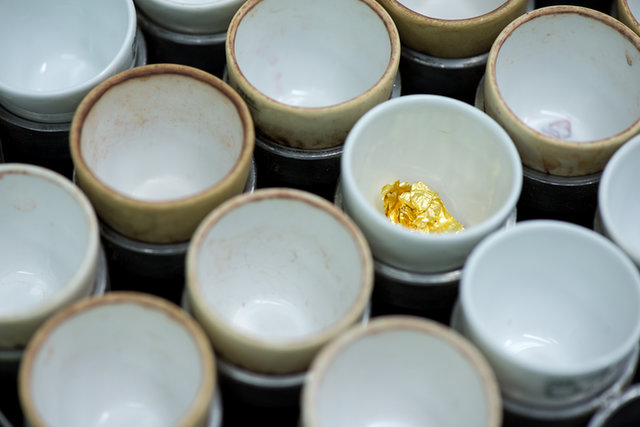T he traditional mining analytical laboratory requires all processes from logging-in samples to executing the sample preparation manually. As a result, the mining process is labour-intensive, and since the control samples require a fast turnaround time, the need for manual labour only increases. Whereas, in an automated mining laboratory, the mining samples are advanced through analytical processes without the need for manual labour, reducing the processing time and improving the quality of analysis.
These automated systems can offer unique advantages compared to manual sample preparation:
- Operator safety
- Traceability and repeatability
- Gravimetric accuracy
- Validated results
- Web based remote control
More than half of the country’s coal mines are managed by pro-Russian separatist militia.Credit: DmyTo/Shutterstock.
More than half of the country’s coal mines are managed by pro-Russian separatist militia.
Credit: DmyTo/Shutterstock.
Automated Wet Chemistry Systems
Automated WetChem systems for the analysis of ore samples have been developed by Nucomat. These automated systems allow the complete wet chemistry sample preparation of up to 500 blasthole and exploration samples per day and automatic multi-species determination of the ore samples.
In a typical sequence, an operator manually loads blasthole or exploration samples into the system where these samples are automatically dispensed into flasks. Unused samples can be archived. Reference samples can also be prepared at customer defined intervals. An environmentally contained cell safely enables liquids including acids to be added to flasks. Bulk quantities of liquid chemicals are safely stored for automatic dispensing. Flask contents are heated, mixed, dissolved, filtered and a precise quantity transferred to a test tube for further analysis. Finally, inline or offline ICP and/or AAS analysis can be performed on each sample.
Outstanding features of the system are, amongst others:
- 24/7 operation
- Modular design allows for flexibility
- On line, real time sample loading
- Improved precision and accuracy by e.g. gravimetric dosing
- Optimal safety for lab personnel
- Drastically reduced health risk
- Several reagent addition possibilities (including strong acids, …)
- Integrated quality control
- Automatic system restart after power failure
- Closed-loop labware utilization with built-in washing station
- Sample preparation for ICP and/or AAS analysis
- LIMS compatibility

Future of lab automation
Integrated quality control
The accuracy of the balances is automatically checked at predefined intervals by the WetChem system using a reference weight. Each individual step in preparing the solutions, e.g. the addition of a certain volume of acid, is checked against the measured values from the balance. All measured values are permanently stored.
If the result of a control measurement differs too much from the reference value, then the availability of the particular analytical instrument is set to inactive by the system control (after confirmation by the operating personnel). In such a case, the remaining samples to be analyzed are diverted to a different, active analytical instrument or parked until the analytical instrument is activated again.

Mining analytical laboratory
WetChem software
The WetChem application program is based on Nucomat’s Robin software architecture, an event-controlled command-line interpreter with SQL server database.
The system allows the generation of various user profiles in order, for example, to give only the system administrator the right to alter important parameters. All alterations to the system configuration are permanently recorded and archived to ensure traceability. The same applies for each sample presented to the system after scanning, all movements of the robot, all weights and all messages from the dosing station.
If the connection to the LIMS computer should be briefly interrupted, then the WetChem system can still continue to work; data matching takes place when the connection is reestablished.
Analytical procedure
The WetChem system analyzes liquids, suspensions, or solid powder samples. Sample vessels are automatically scanned by the system.
The barcode information is linked to a LIMS configuration file containing sample specific parameters: amount of sample, acids to be added, stirring time, digestion temperature, final volume, analytical determination method and the corresponding measuring parameters.
Several working solutions can be prepared from one stock solution. In principle, each stock solution remains within the reach of the gripper arm until the preparation of the working solutions derived from it has been concluded.
Glass Erlenmeyer flasks are suitable for most sample preparation steps and determination. In contrast, PTFE flasks are selected in case hydrofluoric acid is used, as digestion in glass vessels would result in attack of the glass recipients and therefore lead to incorrect results. After the analysis, the used sample flasks are cleaned with hot water in a washing station and can be used again.
The analysis results obtained from this measuring data are stored in the internal database and simultaneously exported in order to be read into the LIMS.
Applications
Several automated sample preparation systems have been developed to perform wet chemistry analysis. Applications include gold analysis in silver prills, determination of copper and silver in ore and copper concentrate samples, etc. These automated systems can significantly improve efficiency and safety of lab operations.
Contact information
Nucomat
Spieveldstraat 45
Ind.park E17/3265
9160 Lokeren
Belgium
Tel: +32 9 395 11 11
Web:www.nucomat.com
Email:info@nucomat.be


